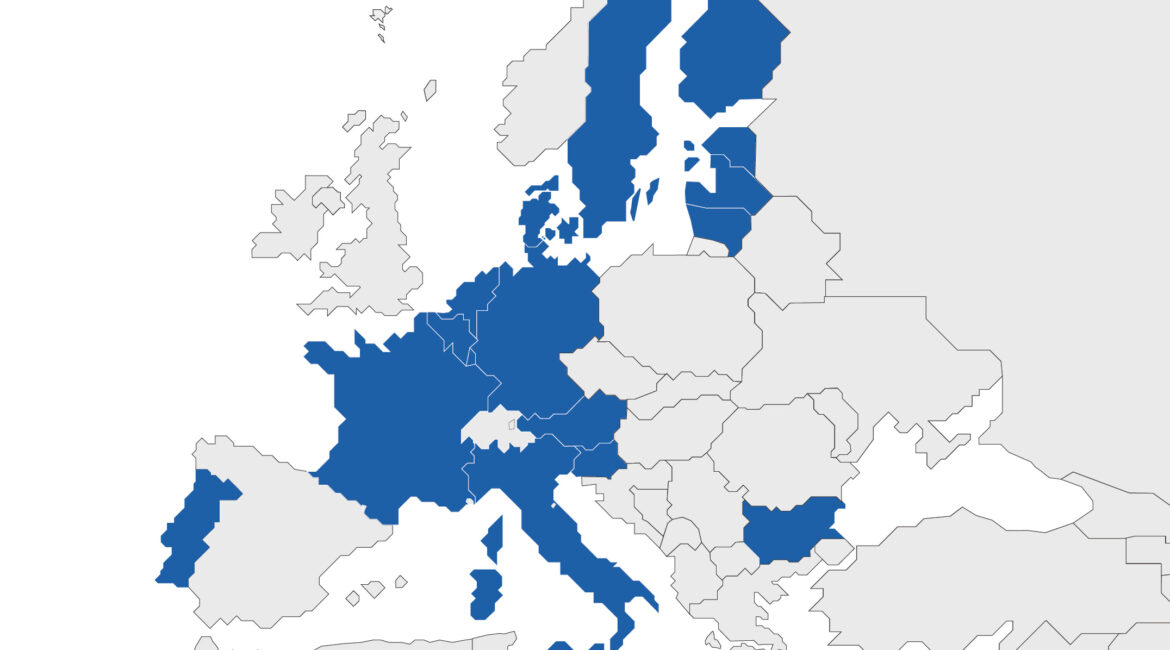The start of the new Unified Patent in Europe has now been confirmed for 1 June 2023. It will be possible after this date to request that any European patents granted after this date can be validated as a so-called Unitary Patent covering a number of European countries. The Unitary Patent is a special agreement within the European Union (EU), and so only EU member states can be covered by the Unitary Patent. This means, for example, Unitary Patents can never be filed for the United Kingdom, Switzerland, or Norway.
Initial EU Countries Covered
Not all member states have yet chosen to join the system or ratified the international agreements. Currently, only the following 17 countries will be members from the start:
- Austria
- Belgium
- Bulgaria
- Denmark
- Estonia
- Finland
- France
- Germany
- Italy
- Latvia
- Lithuania
- Luxembourg
- Malta
- Netherlands
- Portugal
- Slovenia
- Sweden
Countries Joining Later
It is expected that the following countries will ratify the agreement shortly. Any European patents granted after the date of the country’s ratification will also be eligible for unitary patent protection. However, such protection will not be granted retroactively. This means, for example, when Ireland joins – expected later in 2023 or in 2024 – unitary patents will not retrospectively include protection in Ireland.
- Czechia
- Greece
- Ireland
- Romania
- Slovakia
EU Countries not planning to join
Some European Union member states have said that they do not intend to join the Unitary Patent system. In these countries, it will continue to be necessary to request national validation and file translations of the granted European patents in the national patent offices. It is possible that these countries might chose to join the Unitary Patent system at a later date.
- Croatia
- Poland
- Spain
Non-EU Member States
There are, of course, a number of countries who are members of the European Patent Organisation, but not members of the European Union. The Unitary Patent will never be valid in these countries and it will remain necessary to validate the patents in the national patent office. This may include the nomination of a local agent and in some cases also the filing of a translation of the text into the local language.





